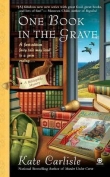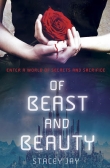
Текст книги "Cruel Beauty"
Автор книги: Rosamund Hodge
сообщить о нарушении
Текущая страница: 12 (всего у книги 17 страниц)
“You do make it fun.”
I nearly yelled at him, but I knew that was not the way to defeat him.
“Almost every day I’ve known you,” I said slowly and clearly, “you’ve told me how you despise the people that come to you, because they won’t admit their sins even to themselves. Are you content to be such a coward yourself?”
He tilted his head back to stare at the sky. “There’s one advantage to being a demon, you know—”
“Besides the power to cause terror and destruction?”
“Besides that and possibly more important. Yes.” He looked at me, his face turned deadly serious. “Demons know alternatives. I have spoken with the Kindly Ones face-to-face. I have handed out their dooms for nine hundred years. I don’t deny what I am, but I know what I could be if I knew too much truth. So yes, I am a coward and a demon. But I am still alive in the sunlight.”
Looking into his eyes, I remembered the Children of Typhon crawling out of the door. He had guarded that door and commanded those monsters for nine hundred years. If I had done the same, maybe I would think as he did.
But I had not, and I crossed my arms over my chest. “The philosopher said that the virtuous man, tortured to death on spikes, is more fortunate than the wicked man, living in a palace.”
“Did he put his theory to the test?” Ignifex was back to smiling.
“No, he died by poison. But he faced that death because he would not give up philosophy, so he was at least in earnest when he said that the unexamined life is not worth living.”
Ignifex snorted. “Tell that to Pandora.”
“And if Prometheus had told her what was in the jar, she’d never have been so foolish.”
“Or been more culpable, when she opened it anyway. There’s no wisdom in the world that will stop humans from trying to snatch what they want.”
My head ached. Flame crackled in my ears.
“Sometimes ignorance,” I said, “is the most culpable . . .”
The crackling turned to the rustle of leaves in the wind, and then to laughter. My lips and tongue continued moving, but what came out were little sharp noises like the language of fire. I tried to silence myself but could not, and I stared at Ignifex in helpless terror.
In an instant he was on his feet, and then he seized my face and kissed me. My lips fought him only a moment; when we finally broke the kiss, both breathless, my mouth and my voice were my own again.
“What . . . was that?” I gasped.
“I will kill him,” Ignifex muttered, hugging me to his chest.
I pulled free. “If he’s just your shadow, I can’t see how that’s possible, and you aren’t answering the question. What was that?”
He looked away. “Something I have not heard in a long time.”
“A useful answer, please.”
“The language of my masters.” He flashed a mirthless smile at me. “You seem to have a gift for surviving what kills most other people. First you survived seeing the Children of Typhon, and it made you able to see their holes in the world. Then you survived the visions in the Heart of Fire, and it seems that now the Kindly Ones can speak through you.”
My heart jagged in my chest. The Lords of Tricks and Justice. Speaking through me.
“What did they say?” I asked.
“Nothing useful. Do you know there was a man the Kindly Ones struck mute and used as their mouthpiece? When they were done, they granted his speech back to him, but he cut out his own tongue because he could not bear to profane it with human words again.”
“Distracting me with gruesome stories will only work so often.”
“I’ll distract you with something else, then.” He grasped my shoulders and turned me around. “Look at the world below. Look at the sky. Tell me what you think.”
“It’s Arcadia. Imprisoned under your sky.” I looked around only to demonstrate that there was nothing to see—but then I paused. A memory niggled at the back of my mind: the round room with its perfect model, the wrought-iron ornament hanging from its parchment dome.
I remembered the words written in the round room: As above, so below. As within, so without.
“It’s all inside,” I breathed. “All Arcadia, our whole world, it’s inside your house. Inside that room.”
He leaned his head on my shoulder. “You see the flaw in your plan.”
The realization crashed over me. If I had somehow managed to set my sigils on all four hearts, and if they worked, I would have collapsed not just his house but all Arcadia in on itself. Whatever that meant for the people living there, it could not be good.
I turned on him, shoving him off my shoulder. “And you let me find three hearts, without telling me? Do you know what could have happened?”
“You’re a very special woman, but last I checked, you still couldn’t fly.”
I opened my mouth to demand what he meant—and then finally I felt the heartbeat. “This is the Heart of Air.”
“Mm.”
“. . . You’re still a fool,” I said. “I’m sure I could somehow use this knowledge to kill you.”
“Would you?”
I opened my mouth, then had to look away from him. “Maybe.” My voice came out rough, and my heart had started racing.
Silence stood between us. “What do you want?” I demanded finally.
He tilted his head. “What do you want?”
His face was pale and composed, his pupils narrowed to threadlike slits; there was no hint of hesitation in his body. It came over me again, the knowledge of how little he was human.
He had clung to me in the night. He had saved my life twice. He had seen me, in all my ugliness, and never hated me; and in that moment, nothing else mattered.
“I want my world free.” I stepped toward him. “I want my sister never to have been hurt by me.” I took his hands. “And I want you to say that you love me again.”
His hands tightened around mine. “I love you,” he said. “I love you more than any other creature, because you are cruel, and kind, and alive. Nyx Triskelion, will you be my wife?”
I knew it was insane to be happy, to feel this desperate exultation at his words. But I felt like I had been waiting all my life to hear them. I had been waiting, all my life, for someone undeceived to love me. And now he did, and it felt like walking into the dazzling sunlight of the Heart of Earth. Except that the sunlight was false, and his love was real.
It was real.
Very deliberately, I pulled my hands out of his. “You’re a demon,” I said, staring at the ground.
“Most likely.”
“I know what you’ve done.”
“The exciting parts, anyway.”
“And I still don’t know your name.” My hands trembled as I undid my belt, then started to unclasp the brooches. It seemed forever since that first day when I had ripped my bodice open so easily. “But I know you’re my husband.”
The dress slid down to land on the ground about my feet. Ignifex touched my cheek very gently, as if I was a bird that might be startled into flight. Finally I met his eyes.
“And,” I said. “I suppose I do love you.”
Then he pulled me into his arms.
“I still might kill you,” I told him, much later.
He traced a finger along my skin. “Who wouldn’t?”
UNCORRECTED E-PROOF—NOT FOR SALE
HarperCollins Publishers
..................................................................
19
In the days that followed, I sometimes felt like I was dreaming.
All my life, I had known I would marry the Gentle Lord, and all my life, I had expected it to be a horror and a doom. I had never thought that I would know love at all, much less in his arms. Now that every hour was a delight, I couldn’t quite believe it was real.
We still looked for an answer. We still hunted through the library and prowled the corridors. But it seemed less like a quest and more like a game. And we played in that house. We chased each other through the rose garden, hiding and seeking in turns; we built castles in a room full of sand; I made him sit in the kitchen while I tried to cook for him and set the pans on fire.
And I was his delight and he was mine. I had read love poems when studying the ancient tongues, though I had never sought them out like Astraia; I had learnt the rhythm of the words and phrases, but I had always thought them empty decorations. They said that love was terrifying and tender, wild and sweet, and none of it made any sense.
But now I knew that every mad word was true. For Ignifex was still himself, still mocking and wild and inhuman, terrible as a legion arrayed for war; but in my arms he became gentle, and his kisses were sweeter than wine.
From time to time, the bell still rang, and he would leave me to speak with whatever desperate fool had summoned him. But when he returned, he no longer told me what capricious bargain he had struck, and he seemed tired, not laughing at all the world. So I took him in my arms and kissed him without asking, holding back my fears as well as hopes.
From time to time, I thought of Astraia, of Father, of my mission. Of Damocles and my mother and everyone who had suffered. But with the mirror shattered, there was no way to see Astraia anymore, no remotest chance to guess what she was thinking of me. And now that I knew Ignifex was a captive as well, I couldn’t wish vengeance on him.
And sometimes a fall of light, the creak of a door—some little, ordinary thing—would start the crackling in my ears, and I would speak to Ignifex in words of flame. But he would never tell me what I said.
“We’re receiving messages from the Kindly Ones and you won’t tell me what they are?” I demanded one afternoon. We were in a musty room with shelf upon shelf of enameled clockwork birds, and when Ignifex wound one up, the jerky motion of its red-and-blue wings made the strange words tumble from my lips until Ignifex pressed me against the shelves and kissed me thoroughly. There was now a cramp in my neck and I did not feel patient.
Ignifex turned away, flung the offending bird to the ground, and crushed it under his boot.
“It’s not ‘messages,’ it’s always the same thing.”
“Then it can’t hurt me to hear, if you’ve survived fifteen repetitions.”
He didn’t look at me. “Do you know why I survive the darkness, no matter how it burns me?”
“Because you’re an immortal demon lord?”
“Because I forget. I always hear a voice in the darkness, saying words that burn me alive. I survive because I always make myself forget that voice as soon as it speaks. But you, my dear Pandora—” He turned on me with a vicious smile. “You are not half so good at forgetting. So I will have to do it for you.”
He whirled and strode out of the room. I stared at the remains of the bird, shattered enamel and twisted springs, and the colorful wreckage made warmth flicker at my temples until I ran after him. I didn’t want to risk an attack when he was not there to break me out of it.
After that, no matter how I begged, goaded, or kissed him, he wouldn’t drop another hint about what I said in words of flame, or what voice spoke to him in the darkness.
Even so, the days were like a dream of delight. But the nights were different. Ignifex was still haunted by the darkness, and he still slept in my arms. And sometimes I slept easily beside him, but more often, I lay awake for hours, staring at the shadows in the corners of the room. At night even more than in the day, I felt as if the past were beneath my fingertips, trembling between one breath and the next, a bottomless well that would drown me if I blinked.
When I did fall asleep, I always dreamt of the garden and the sparrow. Leaves swirled around me, turning to sparks as they flew through the air. I tried to catch a handful; they crackled in my grasp and crumbled to gritty ash.
One is one and all alone, said the sparrow, and ever more shall be so.
“Please,” I said. “Tell me what happened.”
The dream always changed then. Sometimes I glimpsed a blue-eyed prince. I was sure he was Shade, for I would know those eyes anywhere—but though I could never quite remember his face when I woke, I remembered that it was always full of life. He shouted, wept, and laughed: he was never calm and blank like Shade had usually been.
But then he had been free and sane, not a prisoner for nine hundred years and driven to desperate measures.
Sometimes I saw the castle torn down, stone by stone, with wind and fire. Sometimes I saw a wooden door swing open and the Children of Typhon crawl out. Sometimes I saw roses wilting into shriveled brown heaps that burst into flames.
Until one night I did not dream of the sparrow at all. I dreamt that I walked into the room of Ignifex’s dead wives, and there lay Astraia with the rest of them.
I knew I was dreaming, and I knew that nightmares always ended with the moment of pure horror, that just when the dream became impossible to bear, it was over. As I stared at Astraia’s pale face, my throat tight, I knew that I would wake in a moment.
But I didn’t. I stared at my dead sister until I began to sob, and then I cried for what seemed like an eternity, until at last my tears ran dry. Still I did not wake, and by that time I had forgotten I was dreaming. I only knew that I had failed my sister, and that for my punishment I must live with that sin forever. I lay down beside her—the cold, clammy skin was horrible to touch, but I curled closer—and I stared into the darkness and waited.
And waited.
I cried again, and stopped. The tears itched and dried on my face. And I waited, until my vision had faded away, leaving me in total darkness, and I could not feel my sister or the stone slab, only cold all around me.
Finally Ignifex shook me awake. I huddled shaking in his arms, and would not tell him what I had dreamt. All my life had been veined with hatred; I didn’t want to remind us both of the feud between us and maybe awake it again.
But after that night, I couldn’t entirely ignore the knowledge that it was still there.
“Our sky is the dome of that room, right?” I said one evening.
“More or less,” said Ignifex without looking up.
We were in a room with wood-paneled walls and a great fireplace; the entire floor was covered with puzzle pieces that drifted as if moved by invisible currents. The only piece of furniture was a plump maroon couch with gold tassels; I lay draped across the couch while Ignifex sat cross-legged on the floor and tried to assemble the puzzle.
I was trying to read a book about astronomy, but half the words were burnt out. I wanted to know why the Kindly Ones had censored thoughts of the sky and the ancients’ theory of celestial spheres.
“But no one’s ever seen you looming over the horizon,” I said thoughtfully, watching his shoulders move. For once he was not wearing his coat, and the firelight glowed through the white fabric of his shirt.
Ignifex lunged forward, hair swinging, to catch a drifting piece with one finger. He drew it back and fitted it into a corner between two other pieces; it trembled a moment and then was still.
“You would know better than I,” he said, tapping a finger thoughtfully against what he’d assembled. So far it showed part of a castle.
“And when you’re in that room, it looks like a model instead of the whole world. What would happen if you dropped a rock on it?”
He finally looked up, the firelight flickering in his eyes. “And they call me cold-blooded.”
“I wouldn’t do it, I just want to know how this house works.”
“I’m not sure even the Kindly Ones know that.”
“Most of the other rooms have windows,” I said, as much to myself as him. “And I can always see the sky through them. They’re inside Arcadia and Arcadia is inside that room, so . . . that’s the only real place, isn’t it?”
“Or that room is the only place that isn’t real. Does it matter?” He caught a piece that had drifted up from the floor and twisted it between his fingers.
I leaned forward. “What was that box?”
“What box?”
I poked his head. “You know, the one I picked up and then you bore down on me like all the Furies rolled into one.”
“Oh, that box.” He stared at the fire, still twirling the puzzle piece in one hand. “I don’t know.”
“More of your philosophy?”
“No, when I . . . first was, they told me that if I opened the box, it would be the end.”
Upon the box were written the words “AS WITHIN, SO WITHOUT.” That was a Hermetic saying: was the box too, like the house, a Hermetic working?
“The end of you?” I asked slowly. “Or Arcadia?”
“They did not specify, and shockingly, I did not put their warning to the test.” He smiled up at me and slipped the puzzle piece into my hand. “This world’s already seen enough Pandoras, don’t you think?”
I looked at the puzzle piece. It showed stones, and lying against them either a rose petal or a drop of blood. Or perhaps a flame.
“What’s this?” I asked curiously.
“It’s part of this house, so who knows?” The firelight glinted in his eyes as he looked up at me.
I rolled my eyes. “You are entirely too pleased with your own sayings sometimes. I suppose you even have a quip prepared for your death?”
“Are you planning to find out?”
I trailed my fingers through his hair. His scalp was warm and dry beneath my fingertips. It startled me, as it still did sometimes, that he was solid and alive; that this wild, unnamable creature was not a phantom but sat still beneath my hand. That the demon who ruled all our world was mine.
“I don’t know,” I said. “Have you come up with any reasons why I shouldn’t?”
He sat up straighter and kissed me. I leaned forward, kissing him back, until I lost my balance and we both tumbled to the ground, with me landing on top of him.
All around us, loose puzzle pieces flew into the air as lightly as feathers. Once airborne, they did not fall but began a slow, stately swirl about the room, like a formal dance. From the corner of my eye, I saw the ragged portion that Ignifex had assembled was dissolving too, little castle bits lifting up into the air, their collective meaning forgotten. Something—half memory, half guess—niggled at my mind.
Then Ignifex reached up to touch my face. I leaned down to kiss my husband, and thought no more of puzzles.
I wanted to forget. I wanted so much to think only of Ignifex, to make his house into my home. Most of all, I did not want to remember I was on a mission to avenge my mother and save my world.
But more and more, I thought of Astraia. And Mother, and Father, and Aunt Telomache. I thought of Elspeth’s wormwood smile and the one time I had spied her weeping. I thought of all the other people in the village, who must always be afraid that this year the tithe wouldn’t work; of the Resurgandi, who had labored for two hundred years and put their trust in me; of Damocles and Philippa and the people screaming in my father’s study.
Who was I, to consider my happiness more important?
“You’re solemn today,” said Ignifex one morning. We were in a large room with white marble floors and walls covered in ivy. The ceiling was all tree branches, with one window at the center. Under the diffuse circle of sunlight pooled a thick red rug; we had brought books and a pot of tea, but instead of doing research, I ended up resting my chin on a pile of books and staring at the ivy, while Ignifex sipped tea and stroked my hair.
“It’s autumn,” I said. “I can see the trees turning through the windows.”
He tucked a strand of hair behind my ear.
“It’s going to be the Day of the Dead soon,” I said.
“Sounds gruesome.”
“It’s a festival.” I looked at him over my shoulder. “The only one that gentry and peasants share. We celebrate Persephone going down to Hades for the winter, they remember Tom-a-Lone getting his head cut off by Nanny-Anna. Everybody makes grave offerings, then there’s a great sacrifice to Hades and Persephone, and that night there’s a bonfire and they burn a straw Tom-a-Lone dressed up in ribbons.”
I had always loathed the trip to the graveyard. Astraia and I were bundled into our best black outfits, stiff with ribbons and lace, and we would kneel for an hour as Father and Aunt Telomache burned incense and recited endless prayers together, their faces nauseatingly pious. Astraia would sniffle through the whole affair, while I would stare at the carved words “THISBE TRISKELION” and carefully not ask Father why he didn’t just make love to Aunt Telomache atop the grave and have done with it.
“Charming way to honor a god,” said Ignifex.
“Well, he’s already dead. He needs a pyre.”
Ignifex raised his eyebrows questioningly.
I sighed. “I suppose a demon wouldn’t pay attention to the hedge-gods. The story goes, Tom was the son of Brigit, who’s a bit like Demeter and Persephone combined. She rules everything underground, seeds and the dead alike. Anyway, Tom fell in love with Nanny-Anna, the hedge-goddess who dances with the birds. But Brigit was jealous; she didn’t want to share her son with a lover. So she told Nanny-Anna that Tom was mortal like his father—true—but that if his lover cut his head off, he’d turn into a god. Which was also true, but what she didn’t tell her was that he would turn into a dead god, trapped in the darkness beneath the earth. So that’s why he’s called Tom-a-Lone: because he’s sundered from his love, Nanny-Anna, except for the Day of the Dead, when he can meet her from sunset to sunrise. Though really the name doesn’t make sense, since he still has Brigit and all the dead to keep him company.” I shrugged. “The scholars say it’s a corruption of the story about Adonis and Aphrodite, but the peasants swear up and down he’s real as Zeus. Anyway, that’s why the day is for mourning the dead but the night is for drinking and lovers.”
Father always forbade us from attending the “vulgar celebrations,” but Astraia and I had snuck out of the house every year since we were thirteen. And Father never noticed, because he always spent that night with Aunt Telomache.
Ignifex seemed quite taken with the story; he stared off into the air, very still, then rubbed his forehead as if it pained him. Brigit’s advice to Nanny-Anna was not unlike the mocking bargains of the Kindly Ones; I wondered if he had handed out a similar fate to some foolish girl.
My own memories were pulling at me. I remembered Astraia laughing as we danced around the bonfire with all the village—even the people who normally disdained the hedge-gods joined in. Last year we had slipped back home hand in hand, and Astraia had whispered, I don’t mind this day so much when I’m with you.
“I want to visit her grave,” I said.
“Hm?”
“My mother.” The words felt awkward, but I made myself meet his eyes. “I want—I need to visit her grave. I’ve always been a terrible daughter.”
I did not say, And now I am making love to her killer, but I was sure Ignifex knew I was thinking it.
“You’re not supposed to leave this house,” he said. “That is a rule.”
“There’s nowhere I can go but this house,” I pointed out. “Anyway, what about the Heart of Air? That was about as outside as anywhere in Arcadia.”
“I was with you then.”
“So, take me to the graveyard. We don’t have to go on the Day of the Dead, just . . . soon.”
His fingers drummed against a stack of books. From outside, the wind moaned softly.
“Please,” I said.
Abruptly he smiled. “Then I will take you. Since you ask so very nicely.”
“Thank you,” I said, and kissed his cheek.
Ignifex kept his word: he took me only a few hours later, when the sun glinted high in the sky and the parchment around it glowed a honey-gold that put its gilt rays to shame.
“Get whatever you want for an offering,” he said, so I hunted through the house until I found candles and a bottle of wine. Ignifex took out an ivory key and unlocked a white door that I had never seen before. On the other side of it lay the graveyard; I went through it, and found myself stepping in the main gate. Before us a jumble of tombstones sprouted up in ragged rows, from plain little slab markers to statues and miniature shrines twice as large as a man.
Mother’s tomb lay near the back of the graveyard. I could have walked there in my sleep, and it did feel like I was dreaming, to stride there in clean daylight with the Gentle Lord at my side. The air was crisp, and the wind blew in ragged gusts that smelled faintly of smoke; the red-gold leaves swirled about us and crackled under our boots. Above us, the holes in the sky yawned like open tombs, but I was growing used to them. Instead, my back crawled with the fear that human eyes could see us, that all the world was waiting behind the tombstones to leap out and condemn me for my impiety. I looked around again and again, but though I saw no one, I couldn’t shake the feeling of being watched.
My mother’s was not the largest of the tombs, but it was elegant: a stone canopy sheltered a marble bed on which lay a statue of a shrouded woman, so delicately carved that you could see the lines of her face through the gauzy folds. On the side of the bed was carved “THISBE TRISKELION,” and below it the verse—in Latin, since Father was such a scholar—“IN NIHIL AB NIHILO QUAM CITO RECIDIMUS.”
From nothing into nothing how swiftly we return.
I knelt and set out the candles. Ignifex, standing beside me, lit them with a snap of his fingers, then stuck his hands in the pockets of his long dark coat. For the first time that I had known him, there was something stiff and awkward in the way he stood.
“You look like a scarecrow,” I said. “Kneel down and give me the corkscrew.”
He knelt and handed me the corkscrew; after a few moments of cold-fingered struggle, I got the bottle open. I poured a trickle of the dark wine onto the earth before the tomb.
“Blessings and honor belong to the dead,” I whispered. The ritual words were comforting. “We bless you, we honor you, we remember your name.”
I lifted the bottle and gulped a mouthful of wine. It was sweet and spicy, like the autumn wind, and it burned its way down my throat. Then I held out the bottle to Ignifex.
He looked at me blankly.
“We drink as well,” I said. “It’s part of the ceremony.”
His gaze waved. “I . . .”
“You will honor my mother or I will break this bottle over your head.”
That got a ghost of a smile; then he took the bottle, and his neck flashed white as he tilted his head to drink. When he handed the bottle back, I poured another libation into the ground.
“O Thisbe Triskelion, we beg you to bless us. We breathe now in the sunlight, as you once did; we shall soon sleep in death, as you now do.”
I drank again, and handed the bottle back to him. When he had drunk as well, I took the bottle back and sat still, watching the statue’s face. It was curious to see my mother’s grave without Father and Aunt Telomache droning in the background; for the first time, I could look at her stone face without anger curling beneath my skin.
“What now?” asked Ignifex.
I paused, but there had already been ten generations’ worth of hymns sung at her grave; I had no desire to add to them. Instead I took another gulp of wine.
“We finish the bottle.” I passed it back to him.
Ignifex held it up to the light, squinting to see how much was left. “Mortal customs are more fun than I thought.”
We must have sat there nearly an hour, slowly drinking the wine amid the swirling leaves. We hardly spoke; sometimes Ignifex glanced at me thoughtfully, but mostly he seemed absorbed in studying the graveyard. Once, from the corner of my eye, I caught him pouring a tiny libation onto the ground, his lips moving silently.
By the end, we were no longer kneeling but sitting leaned against each other. After I poured the last drops of wine into the ground—for the dead must always have the first and last sip—we sat another few minutes in silence.
“Thank you,” I said at last.
I felt him take a deep breath; then he said, “Your sister calls to me every night.”
I sat bolt upright. “She what?”
“I don’t answer her,” he added quickly.
I was on my feet now, all peace forgotten. Had this started after I broke the mirror? Or had Astraia been trying to sacrifice herself every night since I left, and the mirror had just never shown me? It was the sort of trick I could expect from a piece of the house.
“She knows about your bargains—what can she be thinking?”
“Something heroic, I imagine.” He stood too, as graceful as ever.
I remembered her face as I had left her. Surely she wouldn’t dare so much for the sister who had hurt her.
My shoulders slumped. She had smuggled me a knife. She had grown up hearing about Lucretia taking her own life and Iphigeneia laying down hers on an altar, Horatio defending the bridge and Gaius Mucius Scaevola burning off his hand to show devotion to Rome—all the heroes that Father and Aunt Telomache had used to instruct me. Of course she would dare.
“I thought you had to answer everyone that called on you,” I said.
He shrugged. “Sometimes I must. Sometimes I have a choice. So far my masters seem indifferent to your sister.”
But if the Kindly Ones were half as capricious as he said, sooner or later they would not be indifferent, and when that day came, Ignifex would have no choice but to give her whatever cruel doom they decreed.
“They might be satisfied with her being helpless,” he said. “But . . . I thought you should know.”
There was the awkward stiffness in his stance again. I realized that he was nervous.
“Thank you,” I said slowly, meeting his eyes. “I have to go see her. Even if they never make you answer—for her to risk that much—she must think I’m dead or worse. I can’t leave her that way.” I stepped forward. “Please, let me go back to her. Just for a day.”
“You can’t go alone.”
“So take me there!” But even as I said the words, I realized how foolish they were.
“Even if your father didn’t try to kill me on sight, I would hardly help to ease your sister’s mind.” Ignifex sighed and stared off into the distance. “There is a way. But you must promise not to indulge in any foolishness.”
“I promise,” I said.
He studied me a moment, then pulled the golden ring off his right hand. “Nyx Triskelion, I freely give to you this ring.” He took my right hand and slid it onto a finger. “While you wear it, you shall stand in my place; my name will be yours, and my breath in your mouth.”
I looked at the ring. It was heavy, like a signet ring, but instead of a family crest it was molded into the shape of a rose. It was the ring that Damocles had kissed when I watched him make his bargain, that my father had kissed when he doomed our family. And now it sat on my finger like any other ornament.








